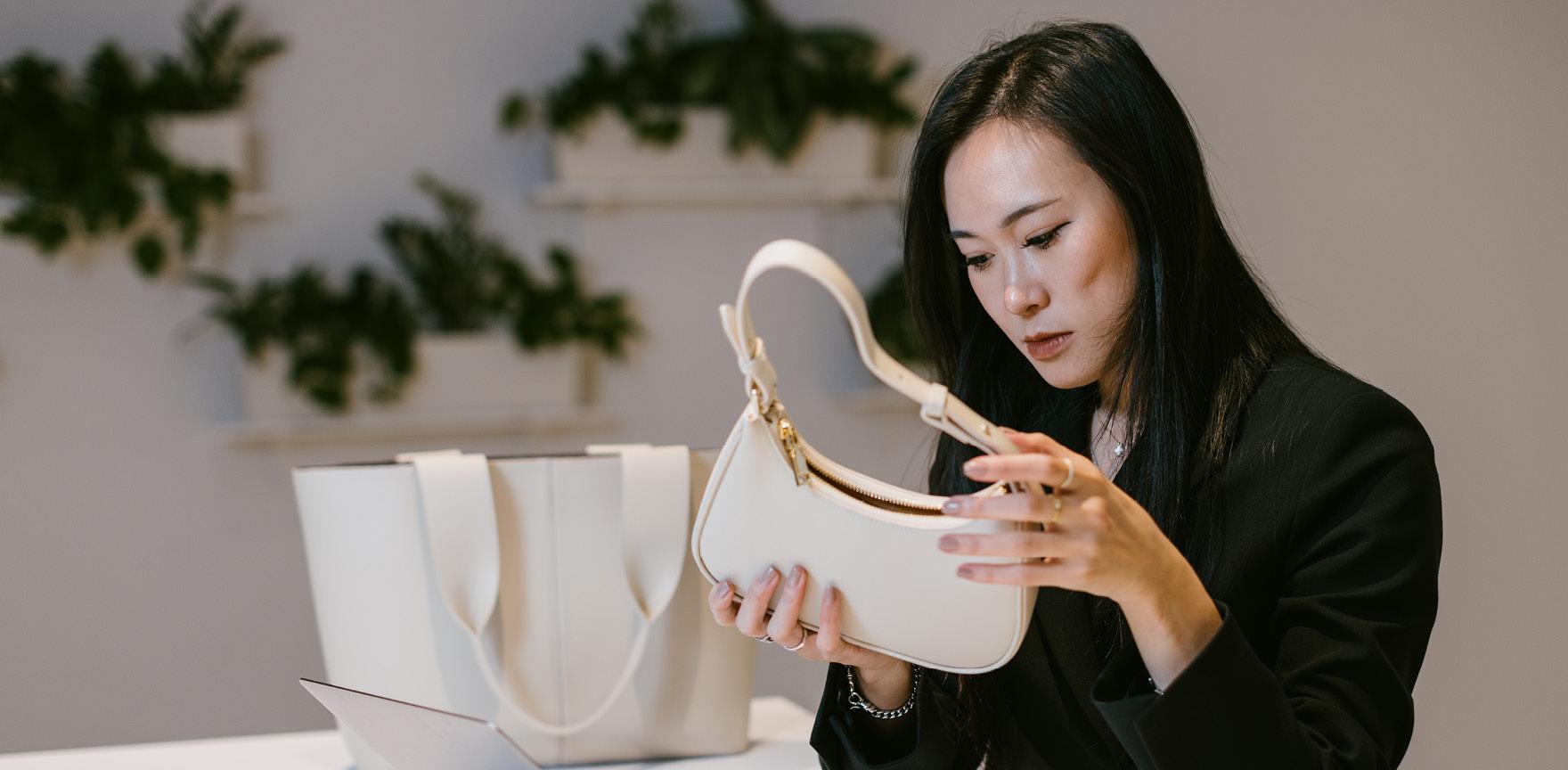
The founder of vegan leather handbag brand Freja explains how getting personal with customers is the secret to their success.
It was searching for a suitable bag for an important job interview that prompted Jenny Lei – an Information Science graduate from Cornell University – to design her own. "I just thought, why is it so hard to find something understated that is made thoughtfully?" she recalls. "A lot of bags are designed aesthetically but are not functional. I wanted a bag that was both but didn't immediately scream functional."
It's just as well that Lei’s job interview wasn’t successful.
Instead, she spent the next 10 months working weekends and evenings, while completing a marketing internship by day, developing a line of beautiful, high-quality, sustainable handbags.
Lei leaned on personal contacts (her best friend’s family runs a textile factory and they introduced her to a leather-like vegan fabric called ultra fiber) to start her brand, Freja (pronounced frei-ya), which means “love” in Danish.
Freja launched with a single style – the Linnea Tote – and has since introduced eight new designs, each released in a limited batch, Each batch sells out quickly, and almost three years later – unlike her failed job interview – Lei’s company is an unqualified success, not to mention a seven-figure business.
But Lei admits she had to learn an important lesson first.
"Freja became Freja when I stopped trying to be like other brands," she explains. “I’ve never done this before, so I was trying things I saw other brands do [from website writing 'voice' to photography style]. It was only when I focused on doing what felt natural to me that we attracted our true audience."
Failure can be the greatest teacher
Lei also admits that the initial launch of Freja in February 2020 was a flop. "We didn't get a single sale, so I had to scrap the entire launch strategy [of running ads on Facebook to sign up potential customers to an email newsletter about the brand].”
Lei realized that she needed to convey the story of Freja in a more thoughtful way to enable customers to connect with what was then an unknown brand.
She had been keeping journal entries of the prior eight months of building Freja leading up to launch, and published them as blog entries on the website. The earnest transparency really resonated with customers, with many reached out citing it as why they chose to support the brand. This connection is a big part of the brand's ethos. “We also send a monthly email newsletter sharing what we’ve been up to in the freja studio. The content is rarely sales-oriented, which I think is key to building a strong relationship,” she says.
For Lei, initial failure set up Freja for future success. "We didn't see good marketing results until a year in," she points out. "But not seeing early results doesn't mean you're not building a good base for the future."
Get personal
Lei started documenting Freja's journey through blog posts and photographs almost a year before launching, and she has no doubt that continuing to authentically share the highs and lows has cemented the brand's loyal following. "You need the audience to feel like you're a human, and to feel invested, they need to see the good and the bad," she explains, citing a blog post about why she was increasing prices as an example.
The ability to differentiate between your product and your brand is also key to connecting with your customer. "Initially, I was like, 'People should want to buy this because it's a good product, it's vegan, it's handcrafted.' But those are adjectives to describe the brand, they are not what makes the brand. You need something more for people to believe in."
What makes Freja, says Lei, is its story. By communicating, "what it takes to actually make a bag and why we made the design decisions we did," Lei attracts people who feel the same way she does. "As a consumer, when I support a brand I'm buying the story. It's an emotional thing that's a lot deeper than a tangible reason."
Finding strength in small
"Becoming a big brand was not my goal," explains Lei. "We're growing at a sustainable pace, and because I don't have investors, there's no pressure to do seasonal collections."
This is something Freja uses to its advantage.
Although the company is big enough to outsource shipping to a fulfillment center, Lei's one-to-one contact with customers means Freja can create new products in response to consumer requests.
"I'm always writing down what our customers are asking for," explains Lei. "Our best-seller, the Paloma Tote, was born because customers loved the Linnea Tote but wanted it to hold a 16-inch laptop. At the end of the day, Freja is for our customers and community, I'm just the one making things happen."
Offer options
Partnering with Afterpay – which 11 percent of Freja’s customers use – was essential from the beginning as its bags are high-quality, investment pieces. "Sustainable options cost more money up front but they are designed to last, so giving someone the option to invest in something they can use for a long time and being able to spread that burden over a few months is really important to us," says Lei.
As an unknown company starting out, Freja also benefited from the association with Afterpay, which "gives the payment process a level of trust we wouldn't have otherwise," adds Lei. And that's not the only perk.
"It's definitely allowed us to reach a broader demographic," says Lei. "A lot of our customers are only just starting their first job and investing in their first bag – I don't want them spending the whole of their first paycheck on it!"
All references to any registered trademarks are the property of their respective owners. Afterpay does not endorse or recommend any one particular supplier and the information provided is for educational purposes only.
Categories